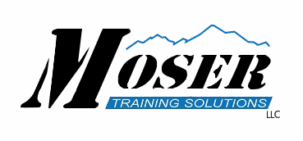Length: Varies from 1-2 days
Target Audience: Coaching and field training staff regardless of program format
Offerings are tailored to the client’s needs. Below are examples of two common related courses (the first is general focus, the second targets remedial issues).
Give your field training staff the tools they need to succeed! When we combine expanding training requirements with an increase in the number of new hires, we can quickly find our valuable field training staff frustrated and burned-out. Whether your agency uses the San Jose Field Training Officer (FTO) model or the Police Training Officer (PTO) model, it is critical to ensure our training is adaptive, learner-centric and most effective. We don’t just need to fill our minimal staffing, we need to ensure the basic competencies associated with core knowledge and application of basic skills is “dialed in”. Easy to say, harder to do– today’s trainers not only have to deal with the complexities of people, they often are training probates with little to no life
experience.
The Advanced Coaching workshop is designed specifically to address these challenges and will assist incumbent field training personnel by further developing the critical communication, coaching and interpersonal skills needed in today’s complex training environments. Objectives and course activities emphasize learner-centric training environments. In addition to addressing strategies to deal with retention of large content, objectives will target the strategies to development the probates inter-personal communication, critical-thinking and problem-solving skills. Attendees will also identify how their communication tendencies differ from and sometimes conflict with others, while affording them the opportunity to enhance their ability perform more
effectively as a field trainer, or training coordinator/manager.
Objectives:
- Create training environments that promote problem-based learning, critical-thinking and interpersonal-communication skills
- Discuss methods that instill confidence and accountability within all trainees
- Review effective adult learning strategies (learner-centric focus)
- Recognize and learn methods to overcome trainee stress, avoid conflict, and use various methods of instruction
- Use case studies to assess remedial training approaches
- List 12 characteristics of outstanding leaders
- Use a workplace profile to tailor delegation and coaching approaches
- Discuss methods for enhancing communication
- Apply learning through simulated case study
- Discover emotional intelligence (EI)—what it is and how it applies to training
- Review a 5-step learning process
- Apply Bloom’s Taxonomy of Learning
Sample course that focuses on remedial strategies. This course is intended for experienced and highly regarded field training staff. This session is facilitated as a 2-day instructor-led workshop. Learning activities address specialized remedial training and documentation approaches targeting today’s trainee challenges.
Objectives:
- Use a management profile to tailor delegation and coaching approaches
- Discuss methods for enhancing communication between specialized trainers
- Analyze documents associated with a training not responding to training
- Use case studies to assess remedial training approaches
- Create performance improvement documents designed for training settings
- Develop a remedial training plan
- Discuss methods that instill confidence and accountability within all trainees
- Review effective adult learning strategies
- Recognize and learn methods to overcome trainee stress, avoid conflict, and use various methods of instruction
- Apply learning through simulated case study
- Relate EI to acceptance of training feedback, control over emotions, and human interactions
- Review a 5-step learning process
- Apply Bloom’s Taxonomy of Learning during a simulated remedial case study
Admin@MoserTrainingSolutions.com
www.MoserTrainingSolutions.com
540-270-4635
